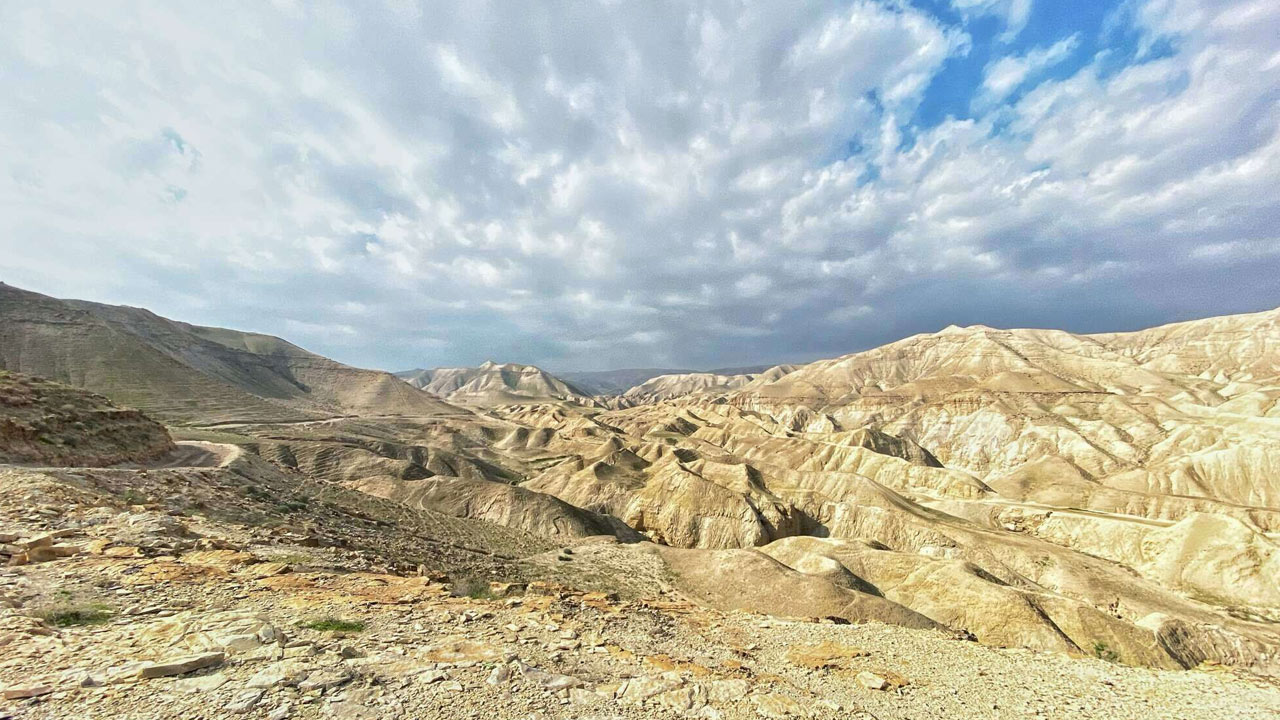| Moses | Messiah |
| Moses survived the slaughtering of infant males at the hands of Pharaoh (Exodus 1:15–22). | Messiah survived the slaughtering of infant males at the hands of Herod, who was targeting the newborn King he heard about (Matthew 2:3–18). |
| Moses’ parents hid him for three months after he was born because they saw he was no ordinary child (Exodus 2:2; Hebrews 11:23). | Messiah’s parents fled to Egypt to hide Him from King Herod’s search (Matthew 2:13–15) because He was “King of the Jews” (Matthew 2:2). |
| Moses stripped himself of the glories of Egypt and chose to identify and suffer alongside his people (Hebrews 11:24–26). | Messiah emptied Himself of all the glories of heaven and chose to suffer to the point of death for His people (Philippians 2:6–8). |
| Moses returned to his homeland after the death of Pharaoh, who was seeking his life (Exodus 4:19). | Messiah returned with His parents to His homeland after the death of Herod, who was seeking His life (Matthew 2:20). |
| Moses asked God for His name, and He replied, “I am who I am” (Exodus 3:13–14). | Messiah claimed the title, “I am” (John 8:58). |
| Moses experienced forty years in the desert and trained as a shepherd before stepping into his role as Israel’s deliverer (Exodus 3:1; Acts 7:30). | Messiah was tested for forty days in the desert before stepping into His role as the Good Shepherd and Redeemer (Matthew 4; John 10:11). |
| God sent Moses as a prophet to Israel (Deuteronomy 34:10). | God sent the Messiah as the ultimate prophet promised by Moses (Deuteronomy 18:15; John 20:21). |
| Moses appeared to the children of Israel as their long-awaited deliverer from slavery and Pharaoh (Exodus 3:10). | Messiah appeared as God in the flesh—as the long-awaited redeemer from slavery to sin and the rule of Satan (Acts 26:16–18). |
| God revealed Himself to Moses in a unique way (Exodus 6:2–3). | Messiah is the unique revelation of God (John 14:9; Colossians 1:15). |
| The first plague Moses unleashed turned the Nile waters into blood (Exodus 7:14–22). | In His first miracle, Messiah turned water into wine (John 2:1–11). |
| God gave Moses signs and wonders to perform so Pharaoh and the Israelites would believe the Lord sent him (Exodus 4:1–9, 7:8–17). | Messiah performed many signs and miracles so the people and their leaders would believe God, His Father, had sent Him (John 3:2, 5:36, 10:37–38). |
| Through Moses, God judged the Egyptian gods (Exodus 12:12). | Messiah confronted and cast out demonic powers, exhibiting authoritative judgment over them (Matthew 8:28–34; Luke 11:20). |
| Moses initiated the sacrifice of a lamb during Passover (Exodus 12). | Messiah offered Himself as the ultimate Passover Lamb (John 1:29; 1 Corinthians 5:7). |
| God parted the Sea of Reeds (“the Red Sea”) through Moses (Exodus 14:21–29). | By walking on water and calming the storm, Messiah demonstrated divine authority over the wind and waves (Mark 4:35–41; Proverbs 30:4). |
| Moses drew water for the people from the rock at Horeb (Exodus 17:6). | Messiah offered living water to anyone who came to Him (John 7:37–38). |
| Moses lifted up the bronze serpent in the wilderness, so the Israelites would live when they looked upon it (Numbers 21:9). | Messiah must be lifted up, and whoever believes in Him will have eternal life (John 3:14–15). |
| Through Moses, God gave and taught the Law on Mount Sinai (Exodus 19–31). | Messiah taught and elevated the Law in His Sermon on the Mount (Matthew 5–7). |
| Through Moses, God rained down manna and quail for the people to eat when there was no food (Exodus 16). | Messiah multiplied a few loaves of bread and fish for crowds of 5,000 and 4,000 to eat (Matthew 14:13–21, 15:32–38). |
| Moses spoke to God in a uniquely intimate way, “face to face, just as a man speaks to his friend” (Exodus 33:11). | Messiah and God spoke intimately to each other in a far more unique manner—as Father and Son (Matthew 3:17; John 17). |
| Moses’ face radiated with the bright glory of the Lord (Exodus 34:29–35). | Messiah’s face “shone like the sun, and His garments became as white as light” during His transfiguration (Matthew 17:2). |
| Moses was willing for God to blot him out of His book (accursed) while interceding for Israel (Exodus 32:30–33). | Messiah willingly became a curse for us (Deuteronomy 21:23) to redeem all people from the curse of the Law (Galatians 3:13). |
| In his parting words, Moses commissioned Joshua to lead the people into possessing the land, assuring him the Lord will be with him (Deuteronomy 31:7–8). | In His parting words, Messiah commissioned His disciples to take the gospel to all the nations, assuring them He will be with them always, even to the end of the age (Matthew 28:16–20). |
| Israel entered into the Mosaic Covenant with God through Moses (Exodus 24:8). | All people enter into the New Covenant with God through Messiah (Luke 22:20). |

